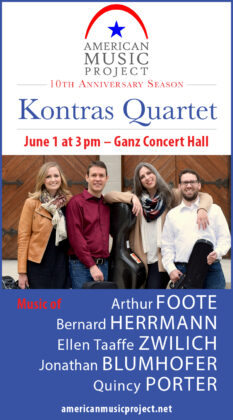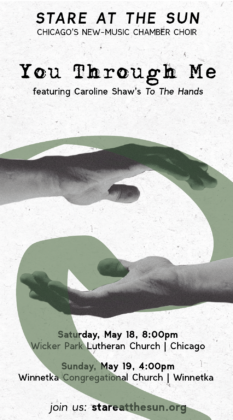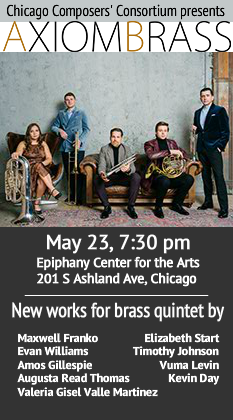Gallic charm abounds at Apollo Chorus’s French Festival, despite resonant acoustic

True to its name, the Apollo Chorus of Chicago’s French Festival, which they sang at St. Michael Catholic Church on Sunday afternoon, was all francophone music. Six of the composers were Frenchmen (Bizet, Duruflé, Fauré, Poulenc, Ravel, and Saint-Saëns) and two (Honegger and Kaelin) were Swiss-French—as guest conductor Pierre-Fabien Roubaty himself is.
Throughout the program, Roubaty exercised skillful dynamic control over the chorus. This was particularly evident in their best performance: Fauré’s Cantique de Jean Racine. The Apollo Chorus’s basses produced a wonderfully delicate opening. The crescendo on “Divin Sauveur” was full of grandeur, followed by a striking hush. And the staggered entrances on the words “qui la conduit” in the second stanza were deftly layered.
This dynamic control was also evident in the selections from Poulenc’s Gloria that bookended the concert’s first half. The opening section of the “Laudamus te” ended clamorously, contrasting effectively with the gentle “Gratias” to come.
Sometimes aiding and other times hampering the Apollo Chorus was the highly reverberant acoustic of St. Michael’s. It made contrapuntal clarity impossible in some complex textures, such as those found in Duruflé’s “Tu es Petrus” and some of the Honegger pieces. But elsewhere, such as when the chorus beautifully tuned the piquant harmonies of Durufle’s “Ubi caritas,” the hall seemed to bring out the resonance of their voicings.
The acoustic also made it difficult to hear most of the keyboard work of Cody Michael Bradley, the chorus’s assistant conductor, who served as accompanist. He and music director Stephen Alltop fared better in two selections from Ravel’s Mother Goose Suite, played as an interlude between halves. And there they got to show their idiomatic elegance in this repertoire.
The most ambitious music on the program was two selections from Honegger’s oratorio Le roi David. This piece is rarely performed and too easy to dismiss as a historical curiosity, as its stylistic eclecticism reflects 1920s composers’ anxieties about how to combine traditional sacred genres with burgeoning neoclassicism and popular music. In the right hands, its most emotional moments can still have an impact.
Roubaty could have elicited a bit more violence from the chorus during the warriors’ descriptions of destroying their attackers. (Honegger marks every single syllable with an accent.) But in his large-scale shaping of the movements, Roubaty’s sense of dramatic sweep was evident. The two solo lines for angels were performed by soprano Martina Skalova, whose nicely projected high notes floated above the chorus.
The only programming misfire was the concert’s finale: the opening chorus from Act IV of Carmen. For much of the piece, the melody is in the piano, which was nearly inaudible over the chorus in the church acoustic. The score is filled with instrumental breaks that are supposed to accompany a lot of stage business, which felt rather awkward with a chorus just standing there instead.
Before the Carmen excerpt, Roubaty led the chorus in what could more effectively have served as the finale: Pierre Kaelin’s Chante en mon coeur pays aimé, a carol-like song that Roubaty referred to as an unofficial anthem of Fribourg, Switzerland, where he hails from. The Apollo Chorus’s performance was wonderfully phrased, with that mix of directness and flexibility that gives simple music like this a feeling of naturalness.
Posted in Performances


